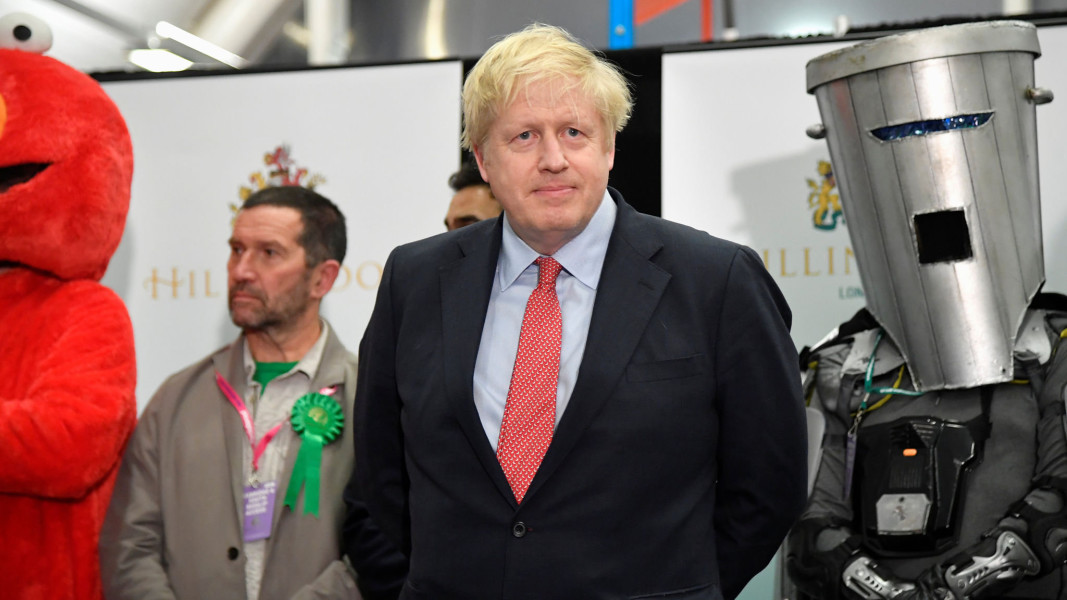Surveying the aftermath of yesterday’s election, and the yoke of Brexit may have finally been removed from the nation’s neck. The weight of Johnson’s majority has eliminated any prospect of a second referendum, let alone the thought of remaining in the EU, with the nature of our future relationship in the forthcoming negotiations now almost entirely in the prime minister’s control. Given that this campaign was almost entirely about Brexit, this raises the question of ‘what else’?
This Parliament, packed to the rafters with Tory MPs, is unlikely to be one that holds Johnson to account. Long prophesied as the Conservative Messiah, he has delivered on his promise with the largest Tory majority since Thatcher, putting him in the position where he can pass legislation enacting whatever policy he desires.
There is the chance that he will try and live up to his statement delivered today outside No. 10, attempting to unify the nation with a form of compassionate Conservatism, drawing the new red Tories and the liberal remainers back into the fold.
It would be naive, however, to assume that Johnson will so easily return to the philosophy of a broad church. Johnson’s Cardinal Richelieu, Dominic Cummings, is invested in revolutionising the British state, and he is not going to simply hand in his pass after masterminding this landslide. Instead, attention may turn to those institutions that could hold the government to account, neutering them to enable a government that can truly deliver a ‘Britannia unchained’. The attacks upon one such institution, the media, have already begun, with sources ruminating upon the BBC’s licence fee and the upcoming renewal of Channel 4’s charter.
The media are mere pygmies, however, with much of the mainstream media’s influence already eroded by the perception of partisanship. Instead, a more imposing impediment is the Supreme Court. The judiciary are often thorns in the side of governments (of either stripe), but have always been respected, recognised as a necessary check. This is a recognition that is curiously absent from the Conservative’s manifesto. For a manifesto that is intentionally pedestrian, a curious exception was carved out for the courts, with the banality of the language concealing revolutionary intent.
The Tories have long had little respect for the courts, with particular ire reserved for the Human Rights Act and its ultimate enforcer, the European Court of Human Rights. However, it is the recent decisions of the Supreme Court that have drawn Conservative fire, with ministers and sympathetic newspapers castigating it as a political court. Rather than deferring to the government, the justices are seen as having exceeded their jurisdiction, interfering with the royal prerogative through forcing the resumption of Parliament.
With this in mind, the manifesto promises to stop judicial review being ‘abused to conduct politics…or to relate endless delays’. In theory, this is legitimate, but it deliberately ignores the fact that the courts already refuse to allow judicial review to stand as a proxy for political decision-making. Overtly partisan cases, like those which sought Johnson’s prosecution for lies, or which challenged Brexit through the Good Friday Agreement, have been thrown out by the courts.
What this manifesto really intends to do is to curtail legitimate judicial oversight. The past nine years of Conservative government have seen policy after policy declared unlawful, from the bedroom tax to the detention of asylum seekers, judicial review preventing the government from constructing a model dystopia. Inhibiting it, particularly if done alongside the abolition of the Human Rights Act, would give Johnson even more territory to directly impose his will upon.
The courts, nonetheless, are not ignorant of these political machinations. The plot to abolish the Human Rights Act has existed almost as long as the Act itself, and the courts have not simply sat back and observed the machinations. Relatively recently, the Supreme Court has begun to note that human rights do not exist solely by virtue of the Human Rights Act, but that they permeate the common law as well. Whilst this does not make them immune from legislative change, the courts have greater control over such common law rights, giving them a more solid foundation in the constitutional framework, less vulnerable to any malign intentions of Parliament.
In a similar vein, the Supreme Court decisions have begun to place more emphasis on the rule of law. Whilst previously it has been used as a rhetorical flourish, with little real substance, the justices used it effectively in Unison, where they struck down employment tribunal fees for being too expensive, and so curtailing access to the courts; whilst in the Cherry/Miller prorogation case, the rule of law was used to justify the striking down of the prorogation, the government’s dismissal of Parliament mangling the constitutional hierarchy. No longer is parliamentary sovereignty the omnipotent force it once was presumed to be.
If the prime minister and his ‘People’s Government’ do come after the courts, he should be careful about what he wishes for. The two Miller cases have shown that the courts are willing to flex their constitutional muscles, and any attempt to defenestrate judicial review or human rights will not be met with a shrug. In America, a desire to exert executive power unnecessarily led to Marbury v Madison, with the American Supreme Court using it to appoint itself the ultimate arbiter of the American Constitution. At this moment of constitutional upheaval, Boris Johnson might not want to give the UK Supreme Court the opportunity to do the same.







